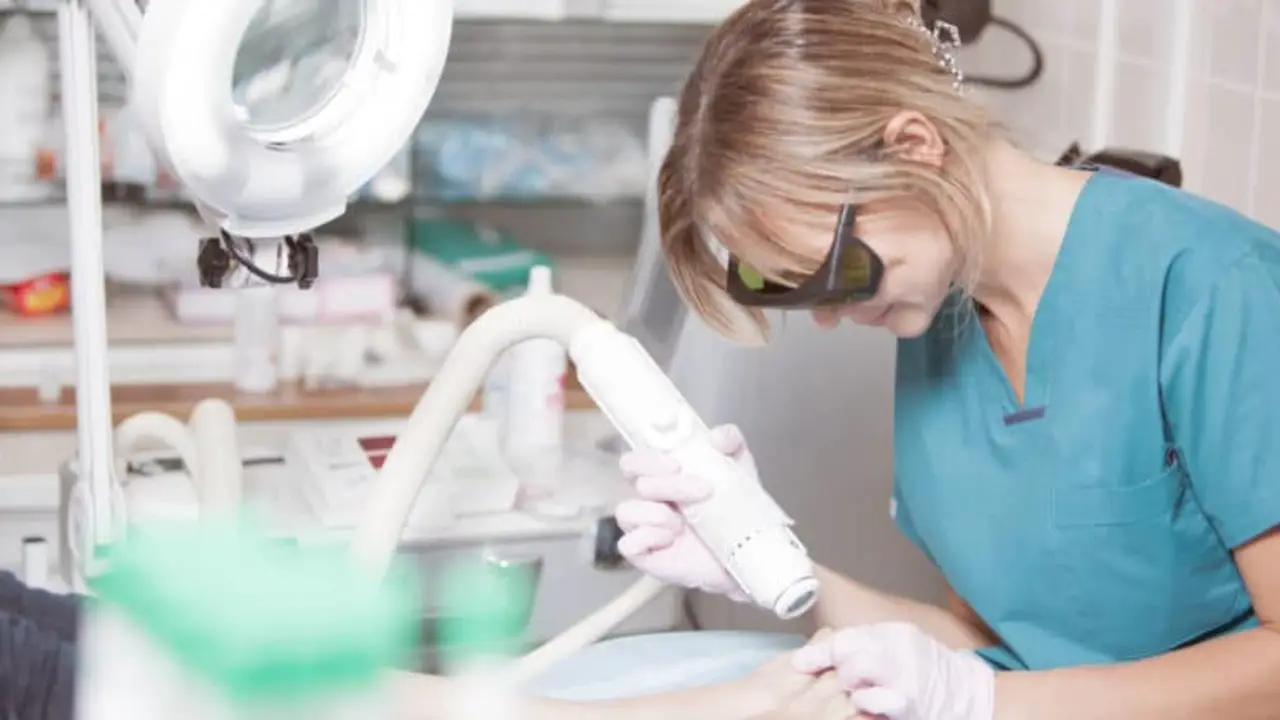Dermatology is a specialized field of medicine that focuses on the diagnosis, treatment, and prevention of diseases and disorders related to the skin, hair, and nails. Dermatologists play a crucial role in maintaining the overall health and well-being of individuals by addressing a wide range of dermatological conditions, including acne, eczema, skin cancer, psoriasis, and more.
As the demand for dermatological care continues to rise, aspiring dermatologists are faced with the important decision of selecting the best college to pursue their education in this field. Selecting the right college for dermatology education is a critical step in the journey toward becoming a successful dermatologist.
The college you choose will shape your educational experience, provide you with knowledge and skills, and lay the foundation for your future career. It is essential to find a college that not only offers a comprehensive curriculum but also provides ample opportunities for practical training, research, and professional networking.
By making an informed decision and selecting one of the best colleges for dermatology, you can ensure that you receive the highest quality education and are well-prepared to meet the challenges of this dynamic and rewarding field.
In this article, we will explore the factors to consider when choosing a college for dermatology and highlight some of the top institutions renowned for their excellence in dermatology education.
Factors to Consider When Choosing a College for Dermatology
- Accreditation and reputation of the College: Accreditation ensures that the college meets specific standards of quality and that the curriculum aligns with industry requirements. Additionally, consider the college’s overall reputation and rankings in the field of dermatology.
- Faculty expertise and qualifications: Look for colleges that have a team of experienced and knowledgeable faculty members who are actively engaged in dermatological research, publications, and clinical practice. Investigate their credentials, specialties, and contributions to the field.
- Research opportunities and facilities: Research experience during your education can enhance your understanding of dermatological conditions and treatment modalities. When evaluating colleges, consider the research opportunities available to students, such as involvement in clinical trials, access to cutting-edge technology, and collaboration with faculty on research projects.
- Clinical exposure and practical training: Investigate the clinical exposure and practical training opportunities offered by the colleges you are considering. Look for institutions that have affiliations with hospitals, clinics, and dermatology centers, allowing students to observe and actively participate in patient care under the guidance of experienced dermatologists.
- Networking and collaboration opportunities: Consider colleges that provide networking and collaboration opportunities with alumni, fellow students, faculty, and industry professionals. Look for colleges that organize conferences, seminars, and workshops where you can interact with experts and peers in the field of dermatology.
- Career placement and alumni success: Research the percentage of graduates who secure dermatology residencies or fellowships, as well as the success stories of alumni in the field. This information can provide confidence in the college’s ability to provide a solid foundation for your professional growth.
Top Colleges for Dermatology Education

1. Harvard Medical School
Harvard Medical School, founded in 1782, is one of the oldest and most prestigious medical schools in the United States. Harvard Medical School is located in Boston, Massachusetts, USA. The primary campus of HMS is situated in the Longwood Medical Area, which is a renowned medical district that also houses several affiliated hospitals and research institutions.
Throughout its history, HMS has been at the forefront of medical education, research, and patient care. The dermatology program at HMS has also built a strong reputation for its excellence in teaching and clinical expertise. Harvard Medical School promotes a collaborative and interdisciplinary culture that encourages students to explore various areas of medicine and engage in cutting-edge research.
The school emphasizes the importance of teamwork, diversity, and the pursuit of academic and clinical excellence. Students at HMS are encouraged to interact with faculty, researchers, and peers to foster a supportive and intellectually stimulating environment. Harvard Medical School boasts a distinguished faculty that includes accomplished dermatologists and researchers.
Harvard Medical School is internationally recognized for its excellence in medical education, research, and clinical care. Graduating from HMS can open doors to numerous career opportunities and networking connections. HMS offers a broad-based education that covers various aspects of dermatology, including medical, surgical, and cosmetic dermatology. This comprehensive training equips students with a well-rounded skill set.
2. Stanford University School of Medicine
Stanford University School of Medicine has a rich history dating back to its founding in 1908. It has grown to become one of the leading medical schools in the United States, known for its commitment to research, education, and patient care. The dermatology program at Stanford has also gained prominence over the years.
The campus culture at Stanford University School of Medicine is known for its interdisciplinary approach and collaborative environment. Students have the opportunity to engage with faculty and peers from various fields of study, fostering a vibrant academic community. The institution emphasizes innovation, diversity, and a commitment to advancing medical knowledge and patient care.
Stanford University School of Medicine boasts a distinguished faculty, including notable dermatologists who have made significant contributions to the field. Some renowned dermatologists associated with Stanford in the past include Dr. Howard I. Maibach, a pioneer in the field of dermatotoxicology, and Dr. Jean Yuh Tang, a renowned expert in the treatment of melanoma and cutaneous lymphoma.
Students may have the opportunity to work with a diverse patient population, gaining hands-on experience in diagnosing and treating various dermatological conditions. Stanford University is renowned for its research programs, and students in the dermatology program may have the chance to engage in cutting-edge research projects, furthering their understanding of the field.
3. Mayo Clinic College of Medicine and Science
The Mayo Clinic College of Medicine and Science is a renowned institution known for its excellence in medical education and research. Mayo Clinic’s history dates back to 1864 when Dr. William Worrall Mayo opened a medical practice in Rochester. It is a part of the Mayo Clinic, which is a nonprofit academic medical center located in Rochester, Minnesota, with additional campuses in Arizona and Florida.
The dermatology program at the Mayo Clinic College of Medicine and Science provides comprehensive training to aspiring dermatologists. The curriculum typically includes a combination of didactic lectures, clinical rotations, and research opportunities. Students gain hands-on experience in diagnosing and managing various skin conditions, such as skin cancer, dermatitis, psoriasis, and more.
Mayo Clinic has a strong emphasis on collaboration, teamwork, and patient-centered care. The campus culture fosters an environment of mutual respect and interdisciplinary cooperation. Students at the Mayo Clinic College of Medicine and Science are encouraged to actively engage in research, participate in clinical rotations, and contribute to the overall advancement of medical knowledge.
Mayo Clinic is renowned for its clinical expertise and patient care. Students have the opportunity to learn from and work alongside leading dermatologists in a highly supportive and patient-centered environment. Students interested in dermatology research can explore various projects and work with mentors who are actively involved in advancing the field.
4. University of California, San Francisco (UCSF) School of Medicine
The UCSF School of Medicine is located in San Francisco, California. It is part of the larger University of California, San Francisco campus, which is renowned for its contributions to medical education and research. The dermatology program has a long and esteemed history, dating back to the establishment of the Department of Dermatology in 1938.
The dermatology program at UCSF School of Medicine is designed to provide comprehensive training in the field of dermatology. The curriculum typically includes core courses in dermatopathology, dermatologic surgery, clinical dermatology, cosmetic dermatology, dermatologic research, and dermatologic immunology.
UCSF School of Medicine has a vibrant and diverse campus culture. It fosters a collaborative and interdisciplinary environment, encouraging students to engage in research, community service, and clinical work. The university emphasizes the importance of teamwork, compassion, and cultural sensitivity in medical practice.
The program provides exposure to a diverse patient population, allowing students to gain hands-on experience and develop their clinical skills under the guidance of experienced dermatologists. Students have the opportunity to connect with faculty, alumni, and other professionals in the dermatology field, which can be valuable for career development.
5. Johns Hopkins University School of Medicine
Johns Hopkins University School of Medicine has a rich history in medical education and research. It was founded in 1893 and has since become one of the leading medical schools in the United States. The school has made significant contributions to the field of dermatology, including pioneering work in the diagnosis and treatment of skin cancers, autoimmune skin disorders, and infectious diseases.
The dermatology course at Johns Hopkins University School of Medicine is designed to provide students with a thorough understanding of the diagnosis, treatment, and management of various skin conditions. The curriculum covers a wide range of topics, including dermatopathology, clinical dermatology, dermatologic surgery, pediatric dermatology, dermatologic research, and cosmetic dermatology.
The campus culture at Johns Hopkins University School of Medicine is characterized by a commitment to excellence, collaboration, and innovation. Students are encouraged to pursue academic and clinical research, participate in interdisciplinary collaborations, and engage in community service. The school fosters a supportive and inclusive environment, promoting diversity and cultural competence among its students and faculty.
Johns Hopkins University School of Medicine is known for its strong emphasis on research. As a dermatology student, you will have access to numerous research opportunities and state-of-the-art facilities, allowing you to explore your interests and contribute to advancements in the field. Being located in close proximity to Johns Hopkins Hospital, students have the advantage of exposure to a diverse patient population and a wide range of dermatological conditions.
Conclusion
In conclusion, selecting the ideal college for dermatology education is a pivotal decision in shaping a successful career in this specialized field of medicine. Several institutions stand out for their exceptional programs, distinguished faculty, research opportunities, clinical exposure, and alumni achievements.
These colleges provide comprehensive curricula that combine academic coursework with hands-on clinical training, giving students a solid foundation in dermatological knowledge and practical skills. Aspiring dermatologists should consider program strengths, faculty expertise, research opportunities, clinical exposure, and alumni success when choosing a college. Ultimately, the right college will shape a fulfilling and impactful career in dermatology.
Additional Posts:


